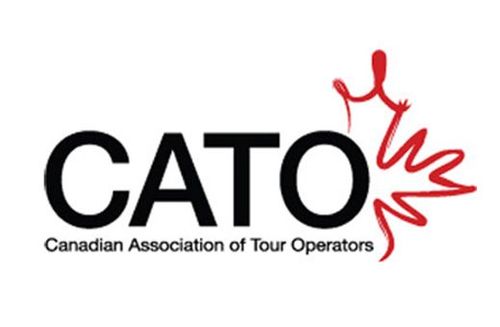Where travel agents earn, learn and save!
News / CATO calls on Ontario government to “fix” 40-year-old Travel Industry Act
The 40-year-old legislation was designed in the 1970s during what CATO describes as “the era of a cash and cheque economy”

CATO (Canadian Association of Tour Operators) is calling on the Ontario government to initiate a thorough review of the Travel Industry Act (TIA), which it says no longer reflects the Ontario travel industry today.
The 40-year-old legislation, which governs and sets standards for all travel retailers and travel wholesalers in the province of Ontario, was designed in the 1970s during what CATO describes as “the era of a cash and cheque economy.” As CATO notes, over 90% of transactions today use credit cards or other forms of e-commerce.
TICO, which administers the Travel Industry Act, released its proposals for a future funding framework, fee structure and Compensation Fund last month, following its annual AGM. There is no mention of a consumer-pay model in TICO’s proposals, something that both CATO and ACTA (Association of Canadian Travel Agencies and Travel Advisors) have long advocated for.
Instead, TICO’s five proposals include a decrease in Comp Fund payments; removing non-contributing end-supplier coverage from the Fund; higher Fund payout maximums; new late filing fees; and recalibrated registrant renewal fees.
A one-month consultation period is currently underway for TICO’s five proposals. Last week, ACTA issued a response, calling for an overhaul of the Travel Industry Act.
In line with ACTA’s call to action, CATO released a similar statement, saying: “CATO cannot support a proposal for change that fails to respond to the travel industry’s repeated demands. We can no longer be the only ones to bear the brunt of an inadequate, outdated, and costly system. In addition, how can we support a proposal that fails to provide a full report about the consumer survey, the actuary report, and especially the report from the Ontario Auditor General. Transparency is once again scorned!”
CATO is asking the Ontario government to “act as an advocate for travel consumers, and to engage its federal counterparts in a discussion of solutions to protect Canadian travellers, especially travel on federally regulated end-suppliers (air and cruise bookings) and given its exclusive responsibility for legislating the airlines and cruise lines service providers under its jurisdiction.”
It added: “This review exercise only serves TICO’s needs, and does not consider the needs of the industry or the improvement of consumer protection. We understand that TICO must resolve its decades-long problem of appropriating funds from the Consumer Compensation Fund to finance its operations. More than 70% of TICO’s operating budget comes from this appropriation of the Fund.
“The industry has always agreed to fund the costs of regulating the travel industry to protect consumers and provide a high standard of services and products offered by travel businesses. What we’ve been trying to defend for a long time is essentially based on a fair sharing of the financing of TICO’s operations and the Consumer Compensation Fund. So, if the government wants to maintain a Compensation Fund for travellers, it must make it more accessible, less complex, less limited, raised to a level that will enable it to deal with major unforeseen situations, and this Fund must be financed by its beneficiary, the traveller.”
Reducing Contributions
TICO has proposed to reduce travel businesses’ contribution to the Compensation Fund from $0.25 to $0.05, which CATO argues is TICO’s way of “regularizing its financing by transferring the $0.20 difference directly to the financing of its operations.”
CATO adds: “It is not a reduction per se for the travel business in total fees, it’s only a financial operation for TICO to redirect from one account to another one. This operation has been called ‘Recalibrate registrant renewal fees,’ with modernized and more equitable fee brands?”
As CATO notes, the reality is that 65% of travel businesses will end up paying higher total fees to TICO, and smaller registrants will see an increase of fees 2-5 times higher than their current fee.
Point of Sale Option
In a video statement, TICO CEO Richard Smart opened for feedback the option of voluntarily passing on or displaying Compensation Fund fees or registration renewal fees at the point of sale, “and how this could be potentially structured and communicated to consumers.”
Calling this a “somewhat contradictory aspect of the proposal,” CATO argues: “Why and how can we ask the industry – thousands of travel businesses – to collect a fee without a minimum legislative framework to ensure its effectiveness and, above all, its uniformity? Introducing a system on a voluntary basis would be the perfect recipe for creating the biggest mess ever seen between companies in the travel sector. This possibility has already been clearly and strongly rejected by the industry.”
Addressing TICO directly, CATO adds: “How can you be so contradictory when you’re told (for the wrong reason) that you don’t want to impose a fee on the consumer, and on the other hand you say, ‘yes, you can do it!’ It’s important to understand that a minimum charge to the consumer would be equivalent to benefiting from real protection, like buying insurance for a few dollars.”
In Comparison to Quebec's Model
Registrants, ACTA and CATO have long advocated for a consumer-pay model, similar to that of Quebec’s. However, in his video, Smart says that while Quebec’s model seems “simple on the surface,” the operational side of this model is a massive challenge.
“The potential for fraud and … consumer double-dipping on claims significantly increase with this model. To replicate a similar approach in Ontario would require laws to be changed, for TICO to significantly invest in and grow its operations, resulting in an increase in the overall regulatory burden on the industry,” says Smart.
In response, CATO says that TICO’s comparisons to Quebec’s Compensation Fund model is highly subjective.
“In our view, the OPC (Office de la protection du consommateur) model is less expensive, fairer and offers far better protection for consumers. The OPC’s Compensation Fund is exclusively for the protection of the travel consumer, financed and much appreciated by the latter,” says CATO.
Adding: “The administration cost of such a fund should also be financed by its own revenues, like any other fund, and perhaps even entrusted to its own administration, thus avoiding the risks of appropriation. We’re not asking to replicate the OPC model, but if the government wants to maintain this protection and compensation tool, it can’t maintain the financial burden to the detriment of our businesses. Aren’t we an ‘open for business’ province? By making businesses pay even more, we are further reducing their competitiveness and sustainability.
“The cost of protecting a $1,000 trip through the OPC’s Compensation Fund, which is much more efficient than the Ontario model, is not even the price of a small coffee at Tim Horton’s, and offers real protection to the consumer. It’s like an insurance policy paid for by the consumer who, when the Fund reaches an acceptable level according to actuarial analyses, they no longer must pay for this protection. In Quebec, the Fund’s minimum level is $125 million. How can we in Ontario conclude that the floor can only be $14 million, for a much larger market? It means ‘protection’ versus ‘not-true protection’.
“A consumer contribution is the only means to grow the Compensation Fund sufficiently to account for current realities and to ensure consumers are fully protected, without any caps, in the event of a registrant failure and unforeseen events. A consumer contribution (insurance protection) is also the surest way to heighten awareness of the Fund’s consumer protection and the importance of booking with a TICO registrant.”
Source: Travelweek











